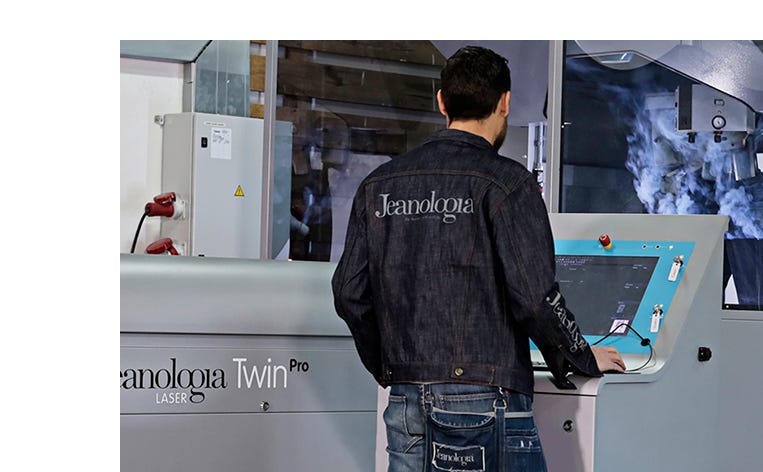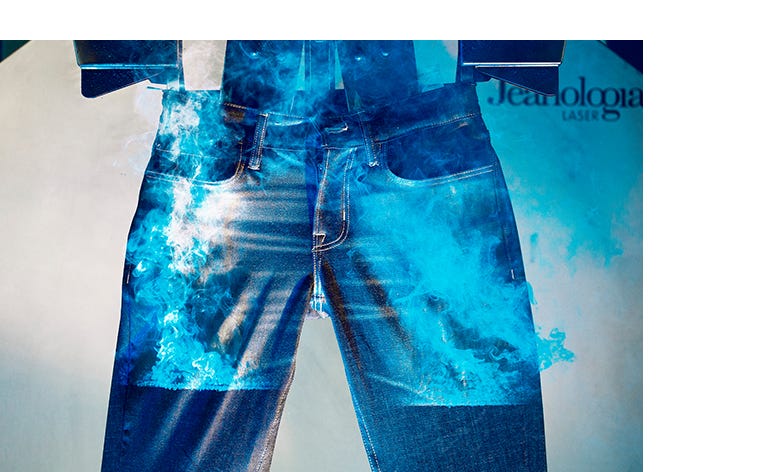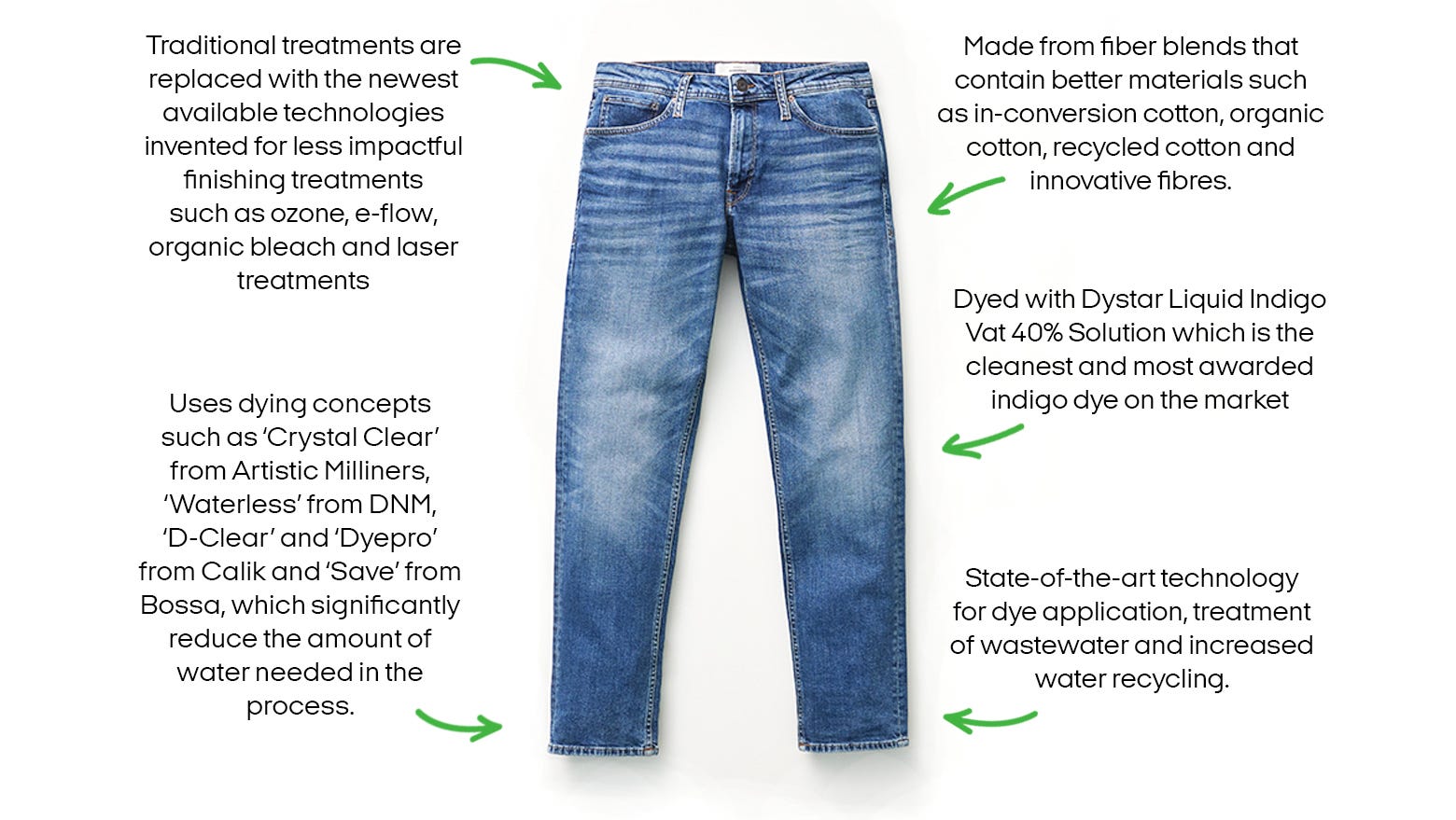
Low Impact Denim is our playground for practical innovation in sustainable manufacturing. It is where we challenge ourselves and our manufacturers to turn sustainability challenges into concrete solutions.
Every Low Impact Denim style uses certified organic, recycled or innovative fibers, water-saving dyestuffs and high tech, low-impact laundry processes. When you spot a pair of jeans with this label, you know it has been created using better materials, dyeing techniques and manufacturing methods.
Rather than a capsule collection, Low Impact Denim is a blueprint for the future of JACK & JONES and our A/BETTER WORLD ambitions. We take what we learn from this project and incorporate it into other products across our brand too.
THE LOW IMPACT DENIM JOURNEY SO FAR
In 2012 the first LID product went into production. Instead of only changing to better materials, we also looked into how we could improve the manufacturing processes. By using Ozone, nano bubbles and Laser treatments rather than wash and manual scraping treatments we reduced the impact in the washing processes. We measured the difference in the impact by using Jeanologia’s Environmental Impact Measurement tool. As the years went by, we were therefore able to implement more sustainable wash techniques into more and more products, thanks to huge efforts from all our manufacturing partners.
In 2018 the LID concept was being rethought. We wanted to widen our focus, from the wash to all aspects of the jeans production including raw material, fabric dyeing and finishing processes. Through closeness, transparency and corporation with our most valuable denim mills and manufacturing partners we bring sustainable jeans production to a higher level. The manufacturers we work with on the LID concept have a strong strategy to reduce environmental impact and set clear sustainability targets. While focusing on lowering the environmental impact, we never compromise on look, quality and authenticity. We continue to make jeans with high value for money – jeans which you will love and wear with pride for ages!
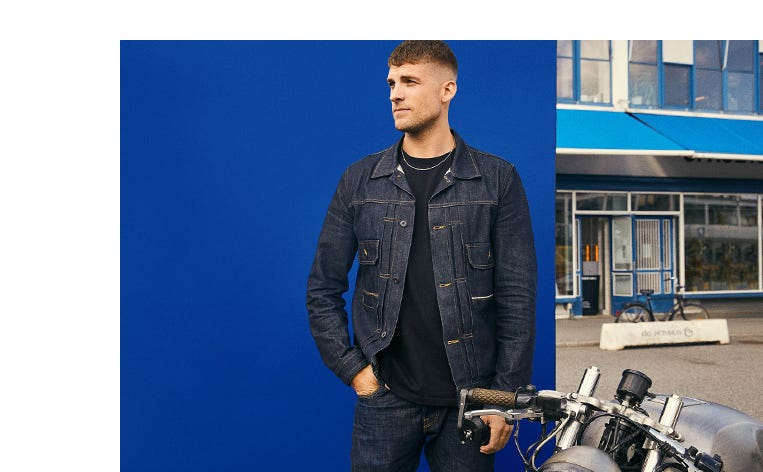
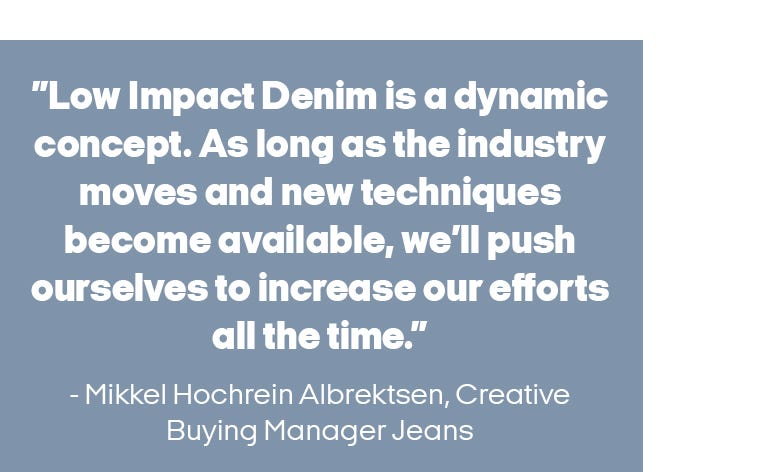
MORE SUSTAINABLE FIBERS
Making a product that is better for the planet starts with using Better Materials [link to Better Materials page]. That is why every Low Impact Denim style is made from different combinations of more sustainable fibers, which are either organic, recycled or innovative material alternatives. Here is what goes into our Low Impact Denim jeans:
● Third party certified organic cotton We always work to raise the bar, so we are constantly investing in new initiatives like fully traceable organic cotton sourced through our Direct-to-Farm initiative. ● Third party certified in-conversion cotton ● Third party certified recycled cotton ● TENCEL™ Lyocell, which is a 100% compostable & biodegradable fiber made with the wood pulp of trees like eucalyptus and beech grown in sustainably managed forests. It is dissolved and processed in a closed loop system, recovering and reusing 99.7% of the solvents used in the process ● Innovative fibres such as Infinna™ fibre and Agraloop™ BioFibre™. Infinna™ technology transforms end-of-life textiles into brand-new fibres without harmful chemicals. Agraloop™ BioFibre™ is a low-impact, natural fiber made from agricultural waste. Instead of throwing out residues from medicine and food crops, the company Circular Systems turns them into fibre.
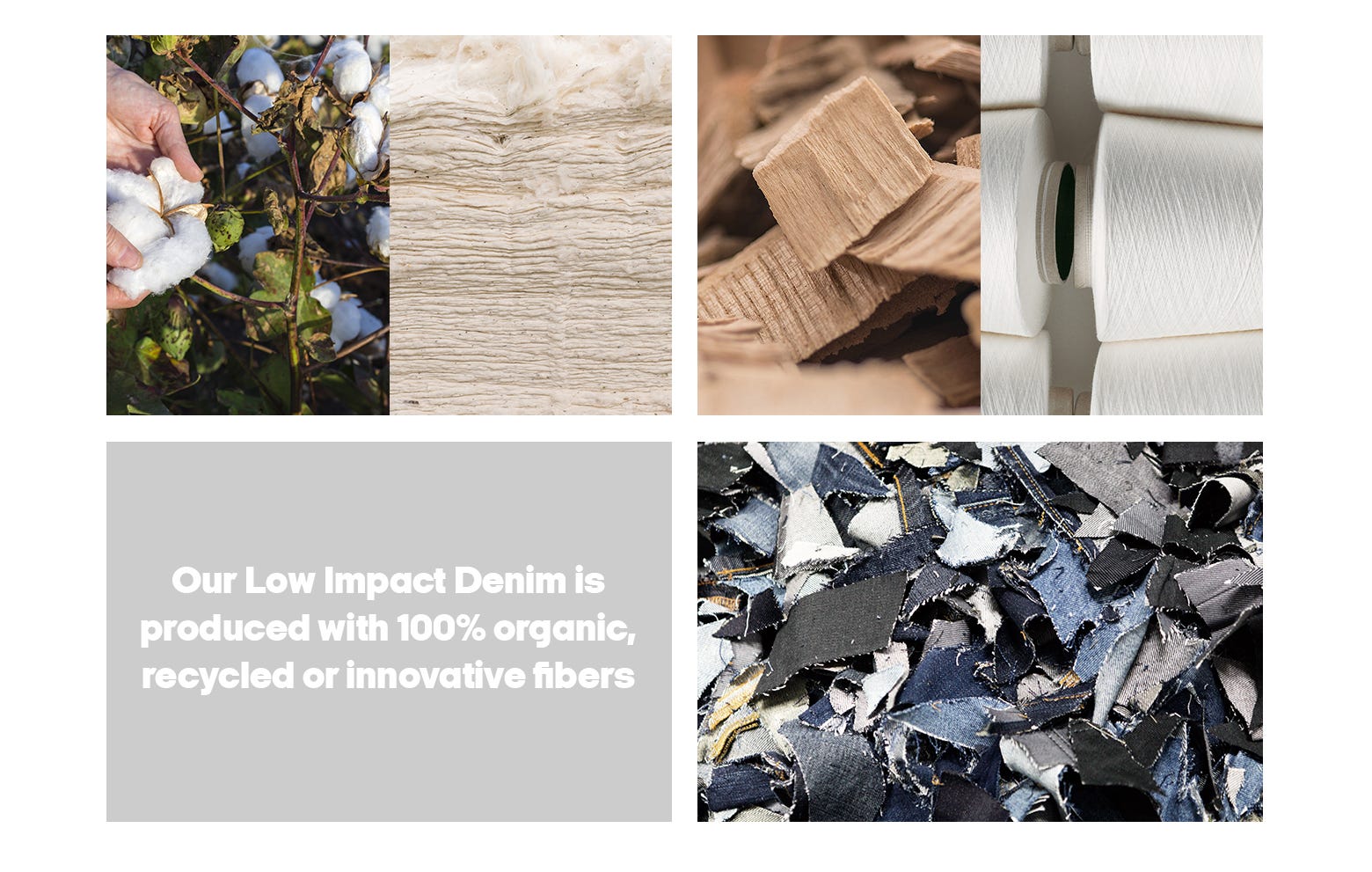
CLEANER DYEING
As born denim lovers, blue jeans are part of JACK & JONES’ DNA. But indigo dye has a pretty big environmental impact, which we are working to improve. Once the composition has been decided, next step is to dye the yarns into the indigo blue shade we all know and love. Through years of research and commitment, few leading key mills have achieved a great milestone! Thanks to innovative dye stuff we can replace the regular indigo dying. When talking about better dying, key elements are; less water and energy consumption, clean waste water, no salt formations, and less chemical usage
We’ve teamed up with some of the most responsible fabric mills in the world including Artistic Milliniers , DNM, Calik and Bossa. These denim mills are strong
performers on environmental management. Artistic Milliners and DNM are some of the leading mills within water recycling and recycle at least 85% of their water discharge in a closed loop within the mills. They all use DyStar Liquid Indigo Vat 40% Solution — the cleanest indigo on the market — for our Low Impact Denim fabrics. Since the indigo is processed in a closed environment using only water, indigo and soda, it is safer for our workers.
The dyeing of the fabrics involves additional special polymers that react with the dyestuff and the fiber - accelerating the dyeing process and further reducing the water used during the fabric creation process. The dying concepts which we work with for LID are ‘Crystal Clear’ from Artistic Milliners, ‘Waterless’ from DNM, ‘D-Clear’ from Calik and ‘Save’ from Bossa. Using these dyeing techniques and certified polymers reduce the amount of water needed in the process by at least 70%. This process is performed within high-tech fabric mills containing state-of-the-art technology for dye application, treatment of wastewater and to increase water recycling – bringing a significantly cleaner denim fabric into our styles.
Our manufacturer’s mills also keep a careful eye on where the water that they do use ends up, using Effluent Treatment Plants to purify it and recycle as much as 85% of it to keep water circulating within a closed loop system.
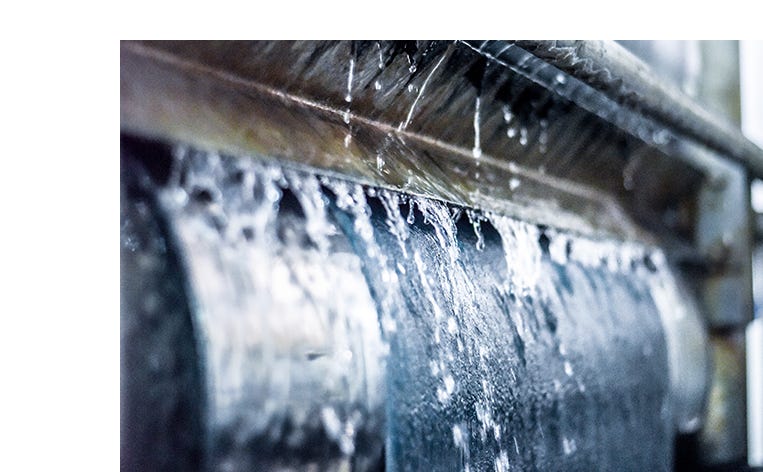
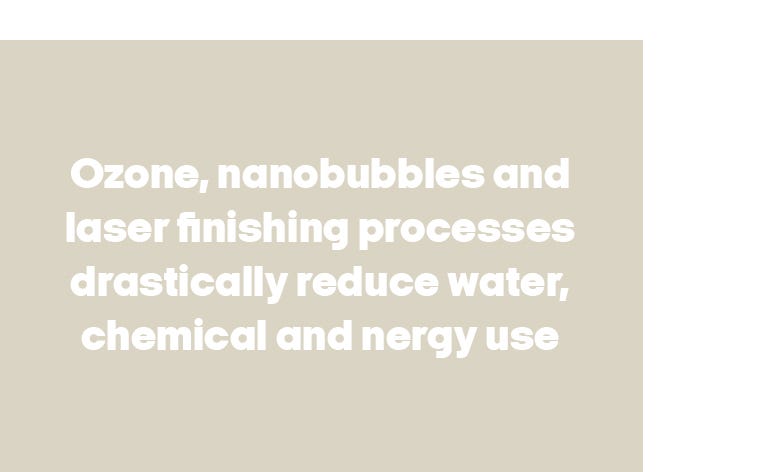
CUTTING-EDGE FINISHING PROCESSES
Traditional treatments are replaced with the newest available technologies invented for less impactful finishing treatments such as ozone, e-flow, organic bleach and laser treatments. Here is some of the innovative tech we use to drastically reduce our water, chemical and energy usage:
● G2 technology turns air into ozone, which fades the jeans by reacting with the dye. When the job is done, it is transformed back into air and safely released, in turn cutting the chemical use by 80%.
● Jeanologia’s e-Flow system uses nanobubbles of air to apply chemicals to the fabrics instead of traditional water baths. They are a game changer when it comes to water, using 95% less of it.
● Laser technology allows us to get precise rips and fades without using chemicals or water.
All the assembly factories of our manufacturers are rated in our social, chemical and environmental rating based on their water, waste, energy and chemical management. Additionally, we calculate the factories’ scores in HIGG FEM into our rating. Further we look into our manufacturer's environmental management as well as their engagement in meetings, training and hiring dedicated staff to be responsible for the environmental management.
